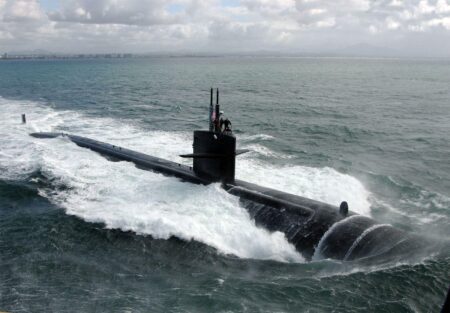Turkey has halted the operations of a survey vessel conducting underwater cable feasibility studies intended to connect France with Cyprus and Greece, escalating tensions in the Eastern Mediterranean. The National Herald reports that Ankara’s move adds a new dimension to the ongoing geopolitical disputes in the region, as Turkey asserts its maritime claims amid competing interests over underwater infrastructure projects. This development underscores the complex intersection of energy, security, and diplomacy among the involved nations.
Turkey Halts Survey Vessel Amid Rising Tensions Over Eastern Mediterranean Cable Route
Turkey has taken decisive action by halting a survey vessel undertaking preparatory work for a subsea cable project linking France through Cyprus and Greece. This move has amplified existing geopolitical strains in the Eastern Mediterranean, where competing claims over maritime boundaries and energy routes have long fueled regional discord. Turkish authorities justified the intervention by citing sovereignty concerns, emphasizing that the vessel was operating in waters Ankara claims as its own exclusive economic zone (EEZ). The project, envisioned to enhance connectivity between Southern Europe and the Eastern Mediterranean, now faces uncertainty amid these escalating tensions.
Key points underpinning the controversy include:
- Maritime Jurisdiction: Turkey disputes the legitimacy of Greek and Cypriot claims over seabed rights in the area targeted for the cable route.
- Energy and Communications Security: The cable aims to bolster regional infrastructure but also intersects with contested underwater energy reserves.
- Diplomatic Implications: The incident risks further souring relations not only between Turkey and Greece but also with EU member states backing the cable initiative.
| Stakeholder | Position on Cable Project | Current Status |
|---|---|---|
| Turkey | Opposes unauthorized surveys; asserts EEZ rights | Vessel halted; naval presence increased |
| Greece | Supports cable route; affirms jurisdiction | Calls for diplomatic resolution |
| Cyprus | Backing project; strategic infrastructure priority | Engaged in EU discussions |
| France | Investor and endpoint in project | Advocates freedom of navigation |
Geopolitical Implications for Cyprus and Greece in Turkey’s Maritime Intervention
Turkey’s maritime interruption not only disrupts a critical infrastructure project but also escalates longstanding tensions in the Eastern Mediterranean. For Cyprus, this act is perceived as a direct challenge to its sovereign rights and territorial waters, undermining efforts to diversify energy and communication links with Europe. The confrontation highlights Ankara’s strategic intent to assert dominance over contested maritime zones, complicating diplomatic relations and cooperation frameworks that have been progressively established with Greece and the European Union.
Greece, positioned as a key regional ally of Cyprus, faces increased pressure to respond diplomatically and militarily to Turkey’s aggressive maneuvers. This incident has galvanized support within NATO and the EU for enhanced maritime security measures and solidarity against unilateral moves. The ripple effects include potential shifts in alliance dynamics and an urgent reassessment of energy corridor security. Key concerns remain:
- Freedom of navigation in international waters
- Protection of undersea communication cables vital for global internet infrastructure
- Preservation of national sovereignty over Exclusive Economic Zones (EEZs)
| Country | Strategic Interest | Potential Response |
|---|---|---|
| Cyprus | Secure maritime borders and energy projects | Diplomatic protests, EU engagement |
| Greece | Maintain regional stability, support Cyprus | Military vigilance, NATO collaboration |
| Turkey | Expand maritime claims, project power | Assertive naval presence |
Strategic Recommendations for Stakeholders to Navigate Regional Energy and Security Challenges
In light of the recent halt of the Turkish survey ship involved in laying a cable path linking France through Cyprus and Greece, key players must prioritize collaborative diplomacy and transparent communication channels to de-escalate tensions in the Eastern Mediterranean. Regional stakeholders and international partners should emphasize multilateral dialogue platforms that include Turkey, Cyprus, Greece, and France, to address territorial and maritime rights disputes. Strategic confidence-building measures, such as joint energy exploration initiatives or mutual data-sharing agreements, can mitigate mistrust while fostering sustainable energy cooperation in this geopolitically sensitive corridor.
Additionally, stakeholders are encouraged to integrate advanced monitoring mechanisms and leverage international legal frameworks to safeguard subsea infrastructure. The following actionable priorities could assist in stabilizing the operational environment:
- Strengthening NATO and EU security coordination to protect critical energy transit routes
- Encouraging investment in alternative routes and energy diversification to reduce dependency risks
- Implementing conflict-resolution initiatives bolstered by technical experts and third-party arbitration
| Recommendation | Target Stakeholders | Expected Outcome |
|---|---|---|
| Enhanced Multilateral Dialogues | EU, Turkey, Greece, Cyprus | Reduced diplomatic tensions |
| Joint Energy Projects | Energy firms, Governments | Shared economic benefits |
| Security and Infrastructure Protection | NATO, Regional Navies | Safe and reliable transit routes |
The Way Forward
The recent halt of the survey ship by Turkey underscores the ongoing tensions in the Eastern Mediterranean over energy exploration and maritime boundaries. As Athens and Nicosia seek to advance their plans for the subsea cable to France, this incident highlights the complex geopolitical challenges that continue to shape regional relations. Observers will be closely monitoring how diplomatic efforts evolve in the coming weeks to address these disputes and ensure stability in this strategically important area.




